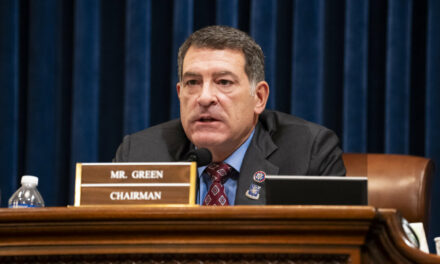We support our Publishers and Content Creators. You can view this story on their website by CLICKING HERE.
Measure to revise Prop 47 garnered more than 600,000 valid signatures.
California’s Secretary of State, Shirley Weber, notified state elections officials on June 11 that a measure to reform Proposition 47 has qualified for the November ballot.
The measure relaxed penalties for various drug and theft crimes in the state—such as drug possession and shoplifting—from felonies to misdemeanors while simultaneously increasing the threshold for felony theft charges to $950 from $450.
Specifically, the act would increase criminal penalties for people who repeatedly engage in theft and drug crimes while also rolling out incentives for those arrested for various drug crimes to take part in and complete drug rehabilitation programs.
The measure would provide drug and mental health treatment for people who are addicted to hard drugs such as fentanyl, cocaine, heroin, and methamphetamine.
How Prop 47 Would Change
The changes would also allow judges to use their discretion to sentence drug dealers to state prison instead of county jail when they are convicted of trafficking hard drugs in large quantities or are armed with a firearm while engaging in drug trafficking.
Elsewhere, the measure would enhance penalties for drug dealers who deal hard drugs and whose trafficking kills or seriously injures a drug user, increase the penalties for those who steal $50,000 or more, and add fentanyl to existing laws that prohibit the possession of hard drugs while armed with a loaded firearm, among other things.
In introducing the measure, Californians for Safer Communities noted the state is at a “tipping point” in its homelessness, drug, mental health, and theft crises, which they credited, in part, to 2o14’s passage of Prop 47.
The measure provides “common sense, targeted reforms to Proposition 47 that legislative proposals alone are unable to deliver” and “provides balanced solutions to ensure our communities are safe” amid the state’s rampant theft problems, according to Californians for Safer Communities.
Newsom, Democrats Oppose Prop 47 Reform
However, California Gov. Gavin Newsom and other Democratic Party leaders in the state Legislature have opposed the Prop 47 reform measure and are instead pushing their own set of public safety bills, which they say will provide the state with additional tools to reduce theft at retail stores and hold criminals accountable.
Those bills would, among other things, make stealing from a retail establishment with the intent to sell the merchandise a felony punishable by up to three years in prison and allow for suspects to be arrested even if the theft was not committed in the presence of a law enforcement official.
Those measures would also establish a retail crime restraining order for up to two years to address vandalism, assault, and theft and impose penalty enhancements of up to four or more years for high-value property theft or destruction.
Notably, they do not increase the penalties for someone convicted of shoplifting if they have two prior theft-related convictions, as the Homelessness, Drug Addiction, and Theft Reduction Act does.
The Secretary of State said in the June 11 advisory notice that her office will certify the initiative as having qualified for the November ballot on June 27 unless withdrawn by the proponents prior to certification.
Tom Ozimek contributed to this report.

 Conservative
Conservative  Search
Search Trending
Trending Current News
Current News 







